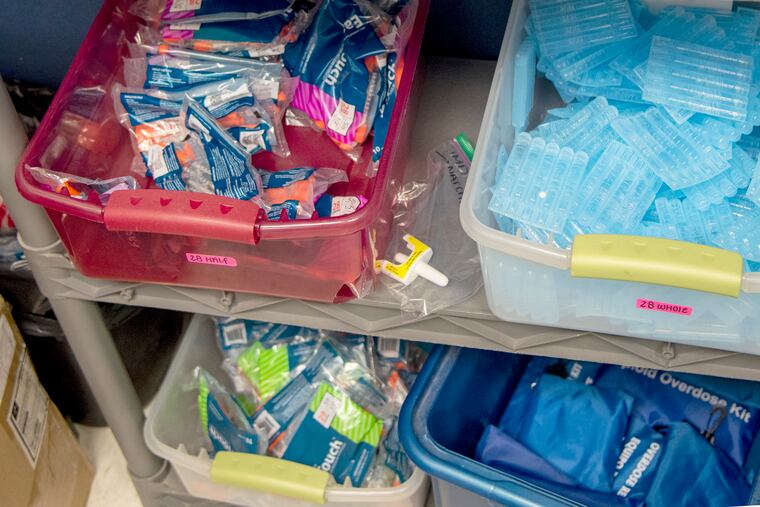Pa. lawmakers must legalize syringe services programs | Opinion
In addition to reducing the spread of diseases like HIV and hepatitis C, the programs have other public health and safety benefits, writes Adam Lake.

The statistics are grim: Pennsylvania has the third-highest rate of overdose deaths and the ninth-highest rate of new HIV infections in the nation. This is unacceptable — and preventable.
Decades of research have shown that syringe services programs reduce the spread of diseases like HIV and hepatitis C for people who inject drugs. These programs also pioneered overdose prevention education and the distribution of the opioid overdose antidote naloxone. Expanding access to naloxone through syringe services programs reduces overdose deaths and saves lives.
Yet, Pennsylvania lags behind other states in implementing these critically important public health programs. Our state is one of only 10 left in the nation that not only fails to implement syringe services programs, but that also considers them illegal. This means that if I provide this evidence-based, fiscally responsible, and lifesaving intervention — I risk being charged with breaking the law.
In my practice of medicine, I have witnessed just how needed these programs are. I treat many people with substance addictions and part of managing these diseases is the ever-present risk that patients will resume using drugs — sometimes by injection, and almost always involving unregulated illicit substances. And when people are injecting drugs, syringes are not hard to find — but clean ones can be.
The research is clear that providing sterile syringes does not increase injection drug use, but it does reduce the harm from injecting.
» READ MORE: Syringe exchanges deemed ‘life-sustaining’ during Pa. coronavirus shutdown, raising hopes for eventual legalization
People who inject drugs are members of our community. They are our sons and daughters, our mothers and fathers. They are our neighbors. They are people we care about — people whom we all should work hard to keep from harm.
Yet, I have seen plenty of harm from the alternative — non-sterile injections. I treat HIV and hepatitis C that people acquired from sharing contaminated syringes. I have had patients die from sepsis, need major surgery for large abscesses, or require open-heart surgery for injection-related infections. Every one of these is an avoidable harm.
When someone is actively using drugs, obtaining and using a sterile needle and syringe is a positive step to decide to protect their health and the health of others. I welcome any positive steps. Just as I applaud a patient who cuts back from smoking a pack a day to just a half pack a day, I don’t withhold compassion in a misguided attempt to let people “hit rock bottom.”
People who are injecting drugs need a welcoming and nonjudgmental place to go. Many have been failed, if not outright mistreated, by our health-care system. We need to partner with direct services that actively show care and compassion to people who inject drugs. Though illegal, nearly two dozen syringe programs currently operate in Pennsylvania, harm reduction experts say. Those programs meet people where they are — not where we might hope for them to be.
We see our crisis getting worse, not better. Since the arrival of COVID-19, our state is now beginning to see overdose deaths rise. Thousands of our neighbors and loved ones are being lost to overdoses and put at higher risk of contracting deadly diseases. It is time for Pennsylvania to untie the hands of public health professionals who want to establish syringe services programs.
» READ MORE: As activists rally in Harrisburg to legalize needle exchanges, a fight to keep them open continues in N.J.
Syringe services programs would provide additional public health and safety benefits for our state. Individuals participating in syringe services programs are five times more likely to enter drug treatment than those who do not connect with the programs. The programs protect law enforcement and first responders by reducing accidental needle sticks.
On top of all this, syringe services programs are fiscally responsible. They save taxpayer money by reducing hospital visits related to overdose and reducing other infections and harms associated with injection drug use. At a time when Pennsylvania, like other states, is facing challenging budget shortfalls, it is imperative that we authorize programs that can effectively reduce these costs.
After many years of inaction, the overdose crisis and COVID-19 are finally forcing policymakers to consider syringe services programs. They must do the right thing and authorize these beneficial programs.
Adam Lake is a physician based in Lancaster.